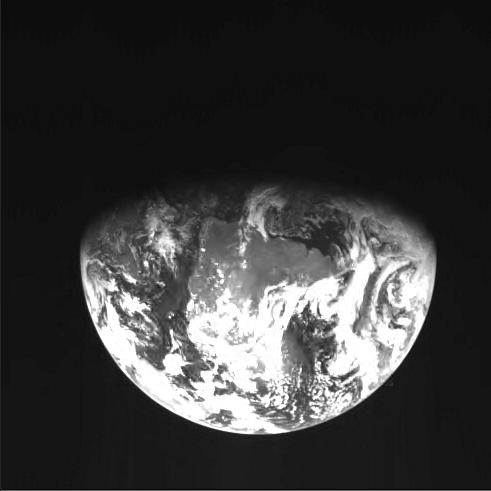Bill Dunford • Feb 11, 2013
The Earth is a Planet: Why We Explore Space
Every time we accomplish something amazing in space, it’s as predicable as sunrise that someone will make the comment ‘why spend so much money/time/effort in space/on Mars/in orbit when there is poverty/disease/famine here on Earth?’
It’s a fair question. I admire the prudent impulse behind it. The trouble is, to be blunt, it’s a question based on ignorance. In most cases, it’s an innocent ignorance, coming from smart and fair-minded people. But the question belies a lack of understanding about why we explore space (or do any kind of science for that matter) how much money is spent and where it goes, and how much we all rely on the results of space exploration and other scientific research every day.
There are many answers to this question; here are mine: First, we don’t spend much as a percentage of the total economy. In the United States, for example, the entire NASA budget—everything from the space station, to climate monitoring, to aircraft efficiency research, to Mars rovers—takes up less than one percent of the federal pie.
Second, the money we do use on space doesn’t go into a black hole (thank you, thank you). Not one cent spent on space is spent in space. It's all spent on Earth-bound people and businesses. It creates jobs directly. Much more importantly, it creates technology and industries that lead to many more jobs. And it creates knowledge and know-how that benefit us all. It’s called R&D, and any smart company or forward-looking nation does it.
Are you interested in the environment, transportation, emergency response, communication, medicine? All of those fields rely day in and day out on satellites and other tools that resulted directly or indirectly from space exploration. Bottom line: going into space is about the problems here on Earth.
Finally, although it’s hard to quantify I believe everyone benefits when we understand, appreciate and enjoy nature. After all, the Earth is a planet, so knowing the planets is one way to better know our own home.

I’m not suggesting that space projects should lie beyond careful fiscal management, tough choices, or even cuts when they can’t be avoided. I'm just saying it’s a copout—a short-sighted, ironically self-defeating copout—to point to problems on Earth as a reason to wield the axe against science and education.
If you agree, the best way I know of to help get the word out and support the cause of science is to join the efforts of The Planetary Society.
I've also compiled a wide range of private and public space advocacy resources and information in one simple place at: www.ridingwithrobots.org/earth. The next time someone asks, 'why spend money on space' feel free to send them there.
Let’s Go Beyond The Horizon
Every success in space exploration is the result of the community of space enthusiasts, like you, who believe it is important. You can help usher in the next great era of space exploration with your gift today.
Donate Today

 Explore Worlds
Explore Worlds Find Life
Find Life Defend Earth
Defend Earth

